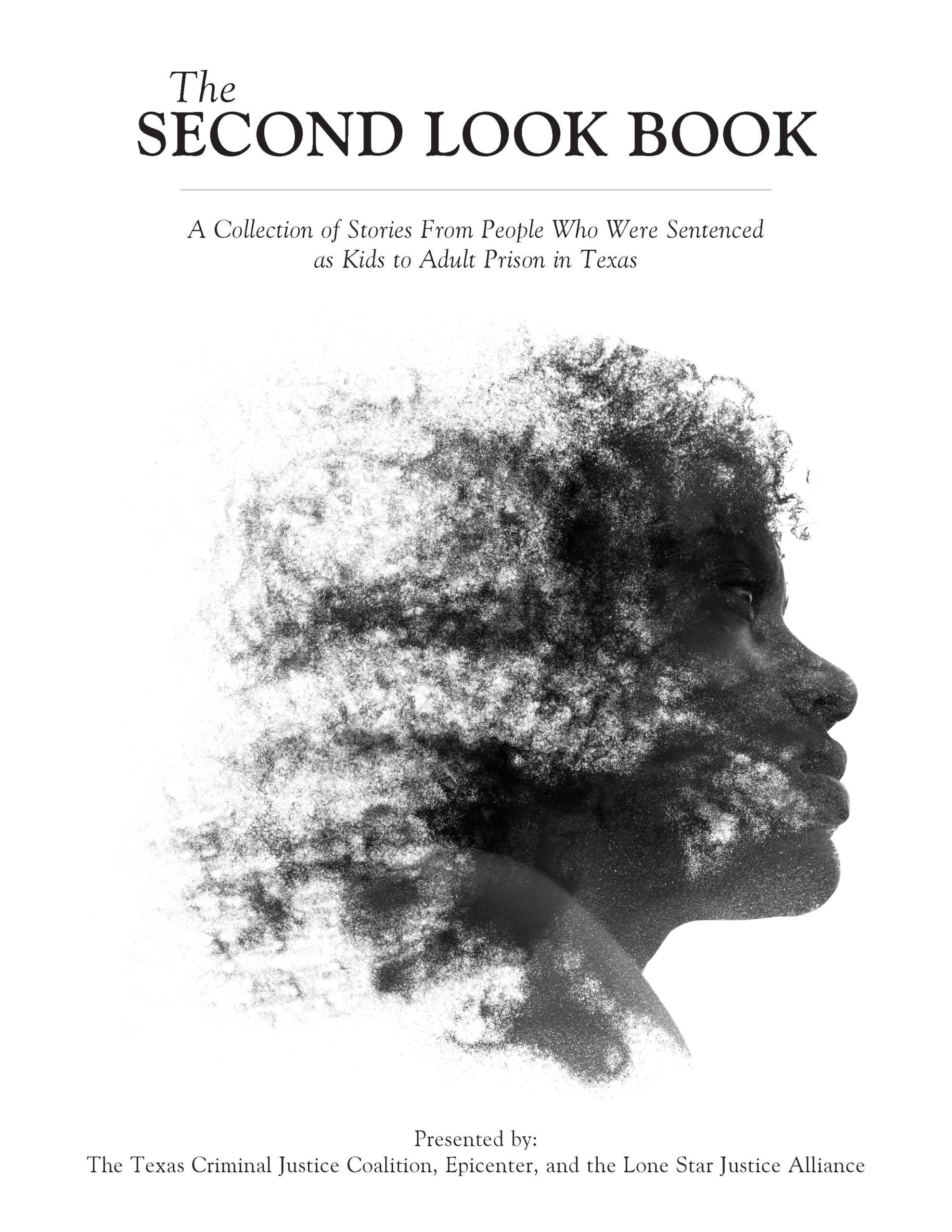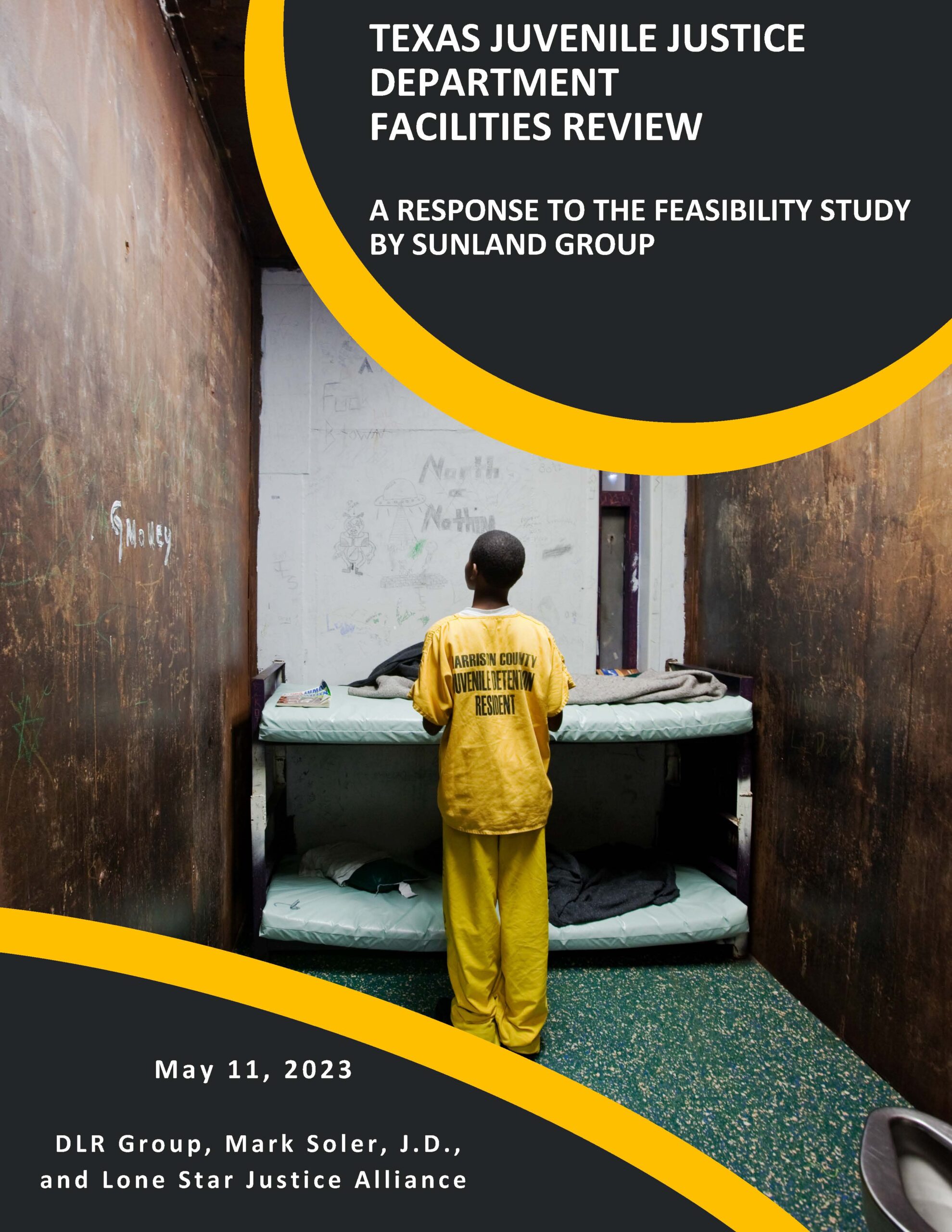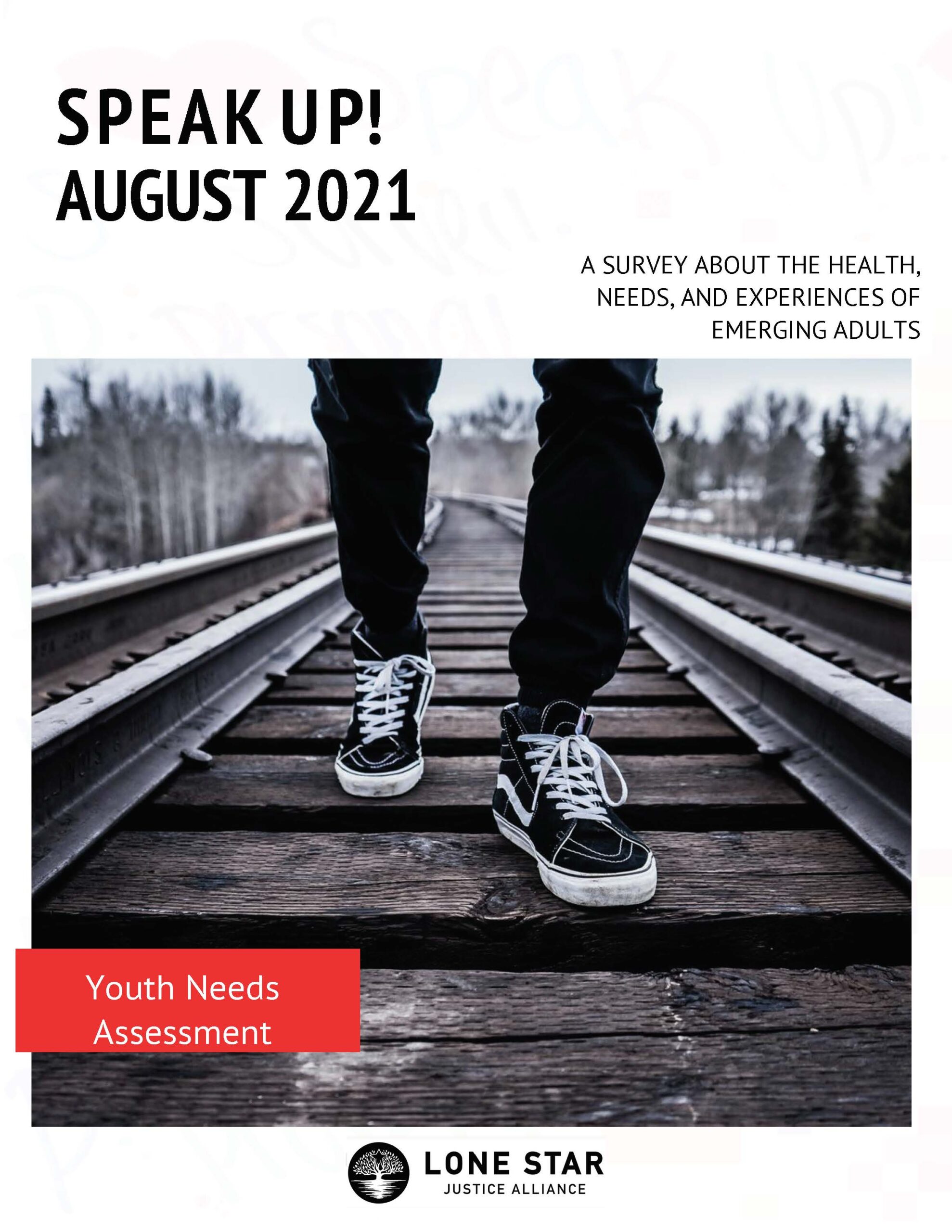RESOURCE
CENTER
BIBLIOGRAPHY
Juvenile Court Statistics 2019
National Center for Juvenile Justice, June 2021
Guidelines for Indigent Defense Caseloads
Texas Indigent Defense Commission: Office of Court Administration, January 2015
Juvenile Addendum: Guidelines for Indigent Defense Caseloads
Texas Indigent Defense Commission: Office of Court Administration, December 2016
Global Report on Trafficking In Persons 2020
United Nations Office on Drugs and Crime, January 2021
National Juvenile Defense Standards
National Juvenile Defender Center, September 2013
Black Disparities in Youth Incarceration
The Sentencing Project, July 2021
How does incarcerating young people affect their adult health outcomes?
Pediatrics, February 2017
Locking up youth with adults: An update
Prison Policy Initiative, February 2018
The Dangers of Detention: Using Research to Prevent or Limit Juvenile Incarceration
Pacific Juvenile Defender Center, October 2017
Report to the United Nations on Racial Disparities in the U.S. Criminal Justice System
The Sentencing Project, April 2018
The Color of Justice: Racial and Ethnic Disparity in State Prisons
The Sentencing Project, October 2021
The Changing Racial Dynamics of Women’s Incarceration
The Sentencing Project, February 2013
Racial Disparities in Youth Incarceration Persist
The Sentencing Project, February 2021
Talking About the Attacks on Critical Race Theory
July 2021 The Opportunity Agenda
July 2021 Alliance for Safety and Justice
Beware Performative Reproducibility
July 2021 Nature
April 2013 Harvard Magazine
A Guide to Community Strategies for Improving Emerging Adults’ Safety and Well-Being
March 2020 Urban Institute
September 2020 Brennan Center for Justice
Social Inequities Explain Racial Gaps in Pandemic, Studies Find
December 2020 New York Times
Op-Ed: Community investment, not punishment, is key to reducing violence
January 2018 Los Angeles Times
Can We Eliminate the Youth Prison? (And What Should We Replace It With?)
June 2020 The Square One Project
Increasing Analytics Capacity: A Toolkit for Public Defender Organizations
October 2016 National Legal Aid & Defender Association
Integrating Education and Training in Young Adult Diversion Programs Technical Assistance Brief
August 2021 U.S. Department of Education Office of Career, Technical, and Adult Education
Second Chance Business Coalition: Why It Matters
Second Chance Business Coalition
Detour to Opportunity: A guide on young adult diversion from the criminal justice system
August 2017 Social Policy Resource Associates
Custodial Sanctions and Reoffending: A Meta-Analytic Review
September 2021 University of Chicago Journals
July 2021 The Council of State Governments Justice Center
Enhancing Equity in the Criminal Justice System: A Self-Reflection Tool
June 2021 Substance Abuse and Mental Health Services Administration (SAMHSA)
The Future of Youth Justice: A Community-Based Alternative to the Youth Prison Model
October 2016 Harvard Kennedy School National Institute of Justice
GLOSSARY
A-E
Adjudicated of Delinquent Conduct – An adjudication of delinquent conduct means that the allegations of delinquent conduct against a child have been found to be true by a juvenile judge or jury.
Adjudication Hearing – An adjudication hearing is a fact-finding trial in juvenile court to determine whether or not a child engaged in delinquent conduct or in conduct indicating a need for supervision.
Adult – In Texas, adult criminal responsibility refers to persons over the age of 17.
Arrest – In an adult case, the term arrest means to take physical custody or to apprehend a person by lawful authority to answer a criminal charge.
Bond/Bail – Bond refers to the written promise of a person accused of a crime (or a surety on his or her behalf) to secure release from custody under specified conditions designed to assure that person’s appearance in court when required. The term also refers to the amount of bond money posted as a financial condition of pretrial release. With only a few exceptions, juveniles do not have the right to bail, and a bond may not be posted in proceedings under the Family Code.
Certification – The process of transferring youth from the jurisdiction of the juvenile court to be tried on the adult criminal side. In Texas, a juvenile who commits a capital or first-degree felony at the age of 14, or who commits any felony at age 15 or 16 may be certified by a juvenile court to stand trial in an adult court.
Child (Juvenile) – A child is a person who is at least 10 years old but not yet 17 at the time he or she is alleged to have committed delinquent conduct or conduct indicating a need for supervision. The terms “juvenile” and “youth” are often used interchangeably to refer to a person under the jurisdiction of the juvenile court who meets the legal definition of a child under Title 3 of the Family Code.
Child in Need of Supervision– A type of juvenile offender who has been adjudicated in juvenile court for a status offense or certain misdemeanor offenses classified as conduct indicating a need for supervision (CINS).
Community Supervision – Community supervision (i.e., adult probation) refers to the dispositional option available after a criminal conviction in which the court imposes certain terms and conditions upon an adult defendant, including the requirement to participate in a continuum of programs and sanctions for a specific period of time.
Convicted/Conviction – A conviction is a judgment of guilt against a criminal defendant.
CPS/DFPS – Child Protective Service or the Department of Family and Protective Services. Youth who are justice involved frequently have simultaneous involvement with CPS/DFPS. When a youth is in custody of CPS/DFPS, and become justice involved, they are considered youth with dual system status.
Criminal – The term criminal is used to describe an adult defendant who has been a charged with and convicted in court of a criminal offense.
Defendant – In a criminal case, a defendant is the person accused of committing a criminal offense. In a civil case, the defendant refers to an individual or business against whom a lawsuit is filed.
Directive to Apprehend – A directive to apprehend is a type of warrant issued by the juvenile court if the court finds there is probable cause to take the child into custody under the provisions of the Family Code.
Discretionary – Transfer of youth made from the juvenile side to the adult side that are under the discretion of the judge.
Disproportionality – Disproportionality occurs when a particular racial or cultural group is represented within a social system at a rate or percentage that is not proportionate to their representation in the general population.
Emerging Adult – A person, age 17 to 24, who is beyond the maximum age of jurisdictional control of the juvenile justice system and handled procedurally as an adult.
Emerging Adulthood – The phase of development between adolescence and adulthood which encompasses the transition from a child who is dependent on parents or guardians for supervision and guidance, as well as emotional and financial support, into a fully mature, independent adult who engages as a productive and healthy member of society. Similar terminology: “Young adults,” “Transition Age Youth.”
F-J
Indictment – An indictment is a formal charge issued by a grand jury stating that there is enough evidence that the defendant committed a criminal offense to justify having a trial; it is used primarily for felonies.
Information – In a criminal case, the information is a formal accusation by a prosecutor that the defendant committed a misdemeanor.
K-O
Mandatory – Transfer of youth made from the juvenile side to the adult side that are mandatory under statute.
Mitigation – Providing decision makers information and context to help determine a fair punishment of the accused.
Multidisciplinary – combining or involving several professional specializations in addressing the needs of our clients.
P-S
Parole – Parole is the discretionary release of an adult offender, post-conviction or plea, to serve the remainder of a sentence in the community under supervision.
Petition – A petition is a document filed in juvenile court that initiates the case and states the allegations of the conduct to be prosecuted in a juvenile proceeding.
Plea of Guilty/Not Guilty – In a criminal case, the defendant’s statement pleading “guilty” or “not guilty” in answer to the charges.
Plea of True/Not True – The statement of a juvenile in response to the allegations of delinquent conduct or conduct indicating a need for supervision. A plea of “true” means that the juvenile does not contest the allegations and a plea of “not true” means that the juvenile disputes the charges and is seeking an adjudication hearing.
Probation – Probation is a dispositional option available to the juvenile court under provisions of the Family Code. A juvenile on court-ordered probation may be allowed to remain at home under the supervision of the juvenile probation department and required to comply with written conditions and to participate in a range of rehabilitative programs and services.
Release to Parents – The circumstance in which a child in custody is released to a parent, guardian, custodian or other responsible adult conditioned upon that person’s promise to bring the child to the juvenile court when required. A child will always be released to a parent unless the court has a legal basis to detain the child.
Respondent – A respondent is the child who is the subject of a proceeding in juvenile court. The use of the term “respondent” rather than “defendant” is derived from the civil nature of juvenile cases.
T-Z
Taken into Custody – A child is taken into custody by a law enforcement officer upon order of the juvenile court, under the laws or arrest, or upon probable cause to believe that the child committed delinquent conduct or other law violations. In delinquency matters, the term “taken into custody” is used rather than “arrest.”
TDCJ – Texas Department of Criminal Justice, governing body of the state’s adult prisons.
TJJD – Texas Juvenile Justice Department, governing body of the five state post adjudication facilities for youth.
Transfer – The official move of a youth from the juvenile to the adult system.
Trial – A trial is the fact-finding proceeding in civil or criminal court in which a judge or jury considers evidence and the testimony of witnesses to decide a verdict of guilt, innocence, or civil responsibility.
Warrant – A warrant is a document issued by a criminal court that authorizes a law enforcement officer to conduct a search or make an arrest.
FEATURED WORK

The Second Look Book
Click here to read a collection of stories from people who were sentenced as kids to adult prisons in Texas.

TJJD Facilities Review
Click here to read our response to the feasibility study by Sunland Group regarding the Texas Juvenile Justice Department’s plan to build three new secure state juvenile residential facilities.

Speak Up! Report
Click here to read our report on the health, needs, and experiences of youth and emerging adults in Texas.
LSJA has developed comprehensive toolkits on a variety of subject matters for defense attorneys, experts, and others representing youth in Texas. Because we believe that every person has the right to holistic representation, these toolkits are available at no cost to the public. Please fill out this form to request access.
